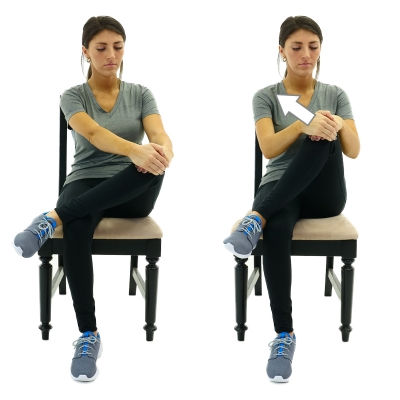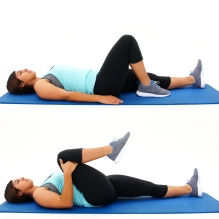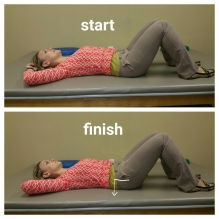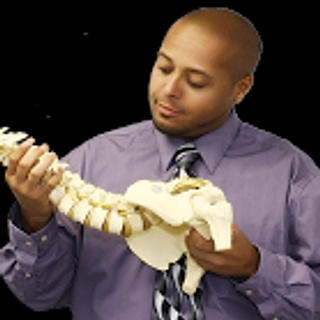Effective Home Exercises for Sciatic Pain Relief
- Seth Lott
- Aug 11, 2025
- 3 min read
If you've ever experienced sciatic pain, you know how it can disrupt your day-to-day life, making even the simplest tasks feel like a challenge. That sharp, radiating discomfort that shoots from your lower back down your leg is often due to irritation or compression of the sciatic nerve. But don't worry—there's hope! By combining gentle, effective home exercises with chiropractic care, you can find significant relief and regain your mobility. In this guide, we're diving into some straightforward exercises like the piriformis stretch, knee-to-chest stretch, and pelvic tilt, all designed to alleviate that pesky pain. Let's get started on the path to feeling better and moving freely.
Effective Home Exercises for Sciatica
When it comes to managing sciatic pain, home exercises can be a game-changer. These simple yet effective movements can help alleviate discomfort and improve mobility. Let's explore three key exercises that can make a significant difference in your sciatic pain relief journey.
Piriformis Stretch Explained
The piriformis stretch is a cornerstone exercise for sciatic pain relief. This stretch targets the piriformis muscle, which can sometimes compress the sciatic nerve when tight or inflamed.
To perform the piriformis stretch, start by lying on your back with both knees bent. Cross the affected leg over the opposite thigh, creating a figure-4 shape. Gently pull the bottom knee towards your chest until you feel a stretch in your buttock.
Hold this position for 20-30 seconds, breathing deeply. Remember, the key is to stretch gently without bouncing or forcing the movement. Repeat on the other side, even if you only experience pain on one side, to maintain balance.


Knee-to-Chest Stretch Benefits
The knee-to-chest stretch is another valuable exercise for those suffering from sciatica. This stretch helps to decompress the lower back and relieve pressure on the sciatic nerve.
To perform this stretch, lie on your back with both legs extended. Slowly bring one knee towards your chest, holding the back of your thigh or shin. Keep your lower back pressed against the floor throughout the movement.
Hold the stretch for 20-30 seconds, then slowly lower the leg and repeat with the other side. This exercise can help increase flexibility in your lower back and hips, potentially reducing sciatic nerve irritation.

Mastering the Pelvic Tilt
The pelvic tilt is a subtle yet powerful exercise that can help strengthen your core and stabilize your lower spine, both crucial for managing sciatic pain.
To perform a pelvic tilt, lie on your back with your knees bent and feet flat on the floor. Tighten your abdominal muscles and press your lower back into the floor, slightly tilting your pelvis upward.
Hold this position for 5-10 seconds, then relax. Aim for 10-15 repetitions. This exercise not only strengthens your core but also helps to improve your posture, which can significantly impact sciatic pain.

Chiropractic Care for Sciatic Relief
While home exercises are crucial, professional chiropractic care can provide additional benefits for those suffering from sciatica. Chiropractors offer specialized treatments that complement your home exercise routine as well as physical therapy treatments.
Why Chiropractic Care Works
Chiropractic care focuses on the relationship between the spine's structure and the body's function. For sciatic pain, this approach can be particularly effective.
Chiropractors use various techniques to address sciatic pain, including spinal adjustments, which can help realign the vertebrae and reduce pressure on the sciatic nerve. These adjustments can improve spinal function and decrease inflammation.
Moreover, most of us chiropractors often combine adjustments with other therapies such as massage, stretching, and exercise recommendations. This holistic approach targets not just the symptoms but the root cause of sciatic pain.
Finding the Right Chiropractor
Choosing the right chiropractor is crucial for effective pain management, so even if it is not us here at Tampa Spine & Wellness. Here are some tips to help you find the best fit:
Look for a chiropractor with experience in treating the condition you are looking for relief for.
Check their credentials and read patient reviews.
Ask about their treatment approach and techniques.
Ensure they're willing to work with your other healthcare providers if necessary.
Remember, a good chiropractor will conduct a thorough examination before starting treatment and will be open to answering all your questions.
Look for a practitioner who offers a combination of in-office treatments and home exercise recommendations.
Don't hesitate to schedule initial consultations with multiple chiropractors to find the best fit.
Trust your instincts – you should feel comfortable and confident with your chosen practitioner.
Contact us for more information!
813-331-5753

























Comments